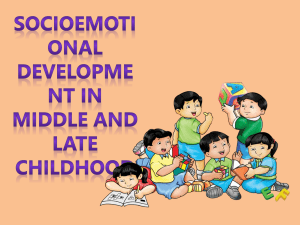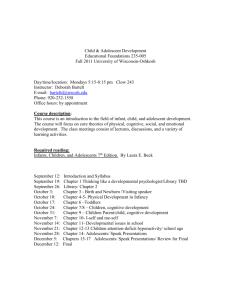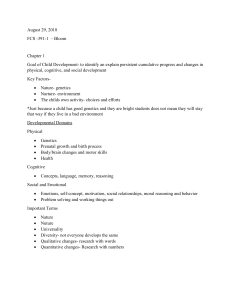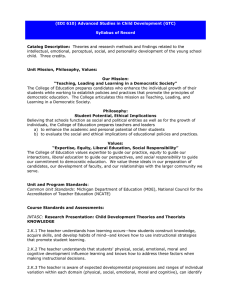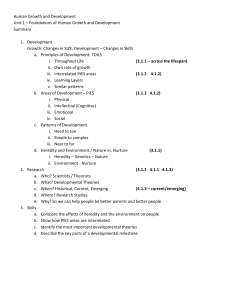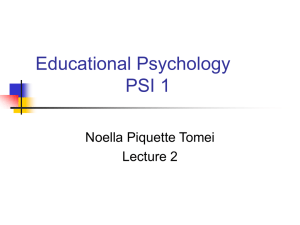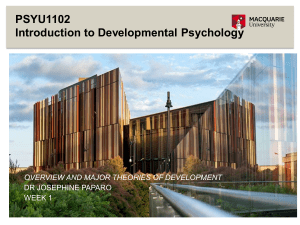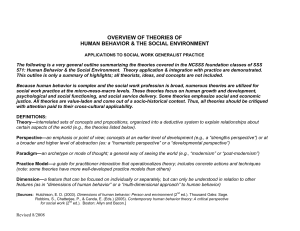Reflections on Two Major Developmental Issues Module 11-9
advertisement
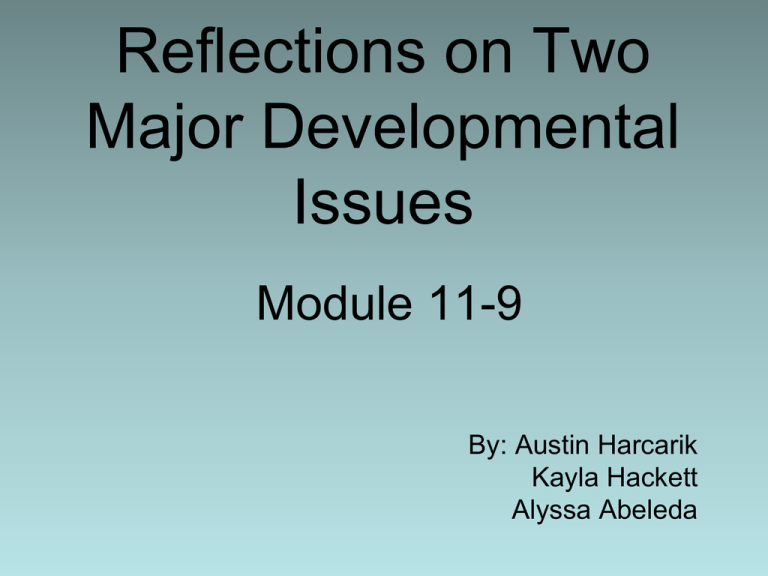
Reflections on Two Major Developmental Issues Module 11-9 By: Austin Harcarik Kayla Hackett Alyssa Abeleda • • • Continuity and Stages generally, researchers who emphasize experience and learning see development as a slow, continuous shaping process although progress through the various stages may be quick or slow, everyone passes through the stages in the same order the stage theories of Jean Piaget (cognitive development), Lawrence Kohlberg (moral development), and Erik Erikson (psychosocial development) propose that life can be divided into neatly defined, age-linked stages Continuity and Stages (continued) • • some research casts doubt on the idea that life proceeds through specific stages nevertheless, the concept of stage remains useful. Stage theories contribute a developmental perspective on the whole life span, by suggesting how people of one age think and act differently when they arrive at a later age Stability and Change • • • Researchers generally agree on the following points: The first two years of life don’t really affect one’s eventual traits. Older children and teens also change. Although delinquent children have elevated rates of work problems, alcohol and drug abuse, and crime, they still are more likely to evolve into mature and successful adults. As people grow older, their personality stabilizes. Some characteristics, such as temperament, are more stable than others, such as social attitudes. Stability and Change (continued) • A research led by Avshalom Caspi studied 1000 New Zealanders ages 326, and they were surprised by the consistency of temperment and emotionality across time • Attitude becomes more stable with age • For most people, life goals also become more stable


